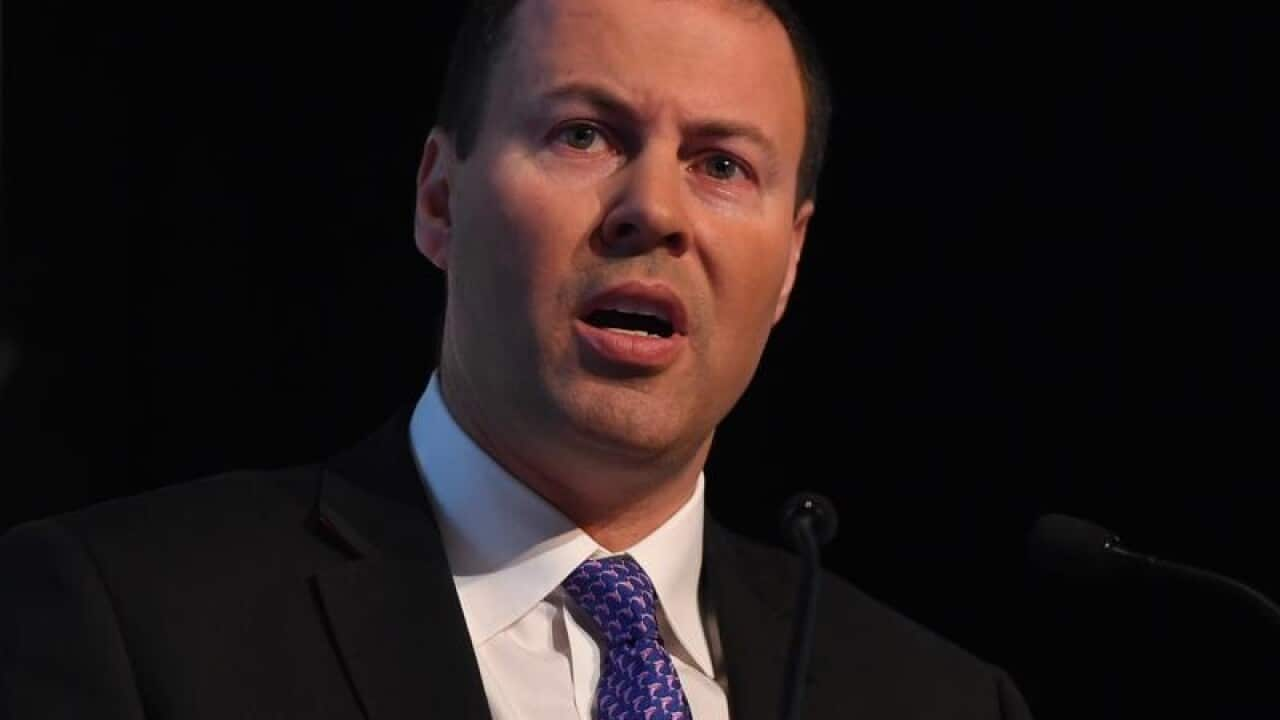Australia isn't concerned about calls from one of Europe's heavy hitters to halt trade deals with nations that have less ambitious climate targets.
French president Emmanuel Macron used his statement to the UN climate talks to call for Europe to establish a border carbon tax and integrate its climate goals into trade negotiations to encourage all countries to do more.
"We should not negotiate (trade deals) with countries who are less ambitious than us because that would reduce our collective ambitions," he told world leaders and ministers in Bonn on Wednesday, without naming particular countries.
"We need a border tax in which we'll make it possible for us to protect economic sectors as there are imports from countries who do not respect these goals and are not supporting the environmental transition."
The second largest bloc within the European Parliament, the Socialists and Democrats, is also pushing for an EU border carbon tax.
Environment Minister Josh Frydenberg said Australia - which has just started formal trade talks with the EU - was a great beneficiary of free trade.
"As for emissions reductions, we've established ambitious targets for Australia and as we've met and beat them in the past we'll do so in the future," he told AAP in Bonn.
"We beat our first Kyoto target, we're on track to beat our 2020 target and I'm confident we'll meet and beat our 2030 target."
But recent reports suggest the picture may not be so rosy.
The UN Environment Program's emissions gap report agrees Australia is on track to beat its 2020 target, but says without further action it faces being at least 152 million tonnes above its 2030 emissions target.
Australia came 57th out of 60 countries in a climate change progress index report released by green groups on Wednesday, finding it a very low performer on emissions, energy use and climate policy.
The federal government is nearly finished a 12 month climate policy review, which Mr Frydenberg said was a good way to examine future requirements.
"(There) is a very positive story to tell about Australia's involvement at the multilateral level and our emissions abatement," he said, citing the lowering emissions intensity of the economy, the low-cost of abatement achieved under the Emissions Reduction Fund, and a range of initiatives including those in the blue carbon and land management sectors.
All countries are under pressure to increase their emissions targets and that urgency has been repeatedly expressed at the COP23 talks.
Mr Macron said it was especially important for developed countries to step up.
"Rich countries have imposed on the world their universal values," he said.
"Today they do not have the choice of imposing their own tragedy on the other countries of the world."
German chancellor Angela Merkel told the conference industrialised nations had an historical responsibility to cut emissions.
"We have to be seen as serious and accepting Paris (agreement) as a starting point but also knowing that our work has only started," she said.
Share

